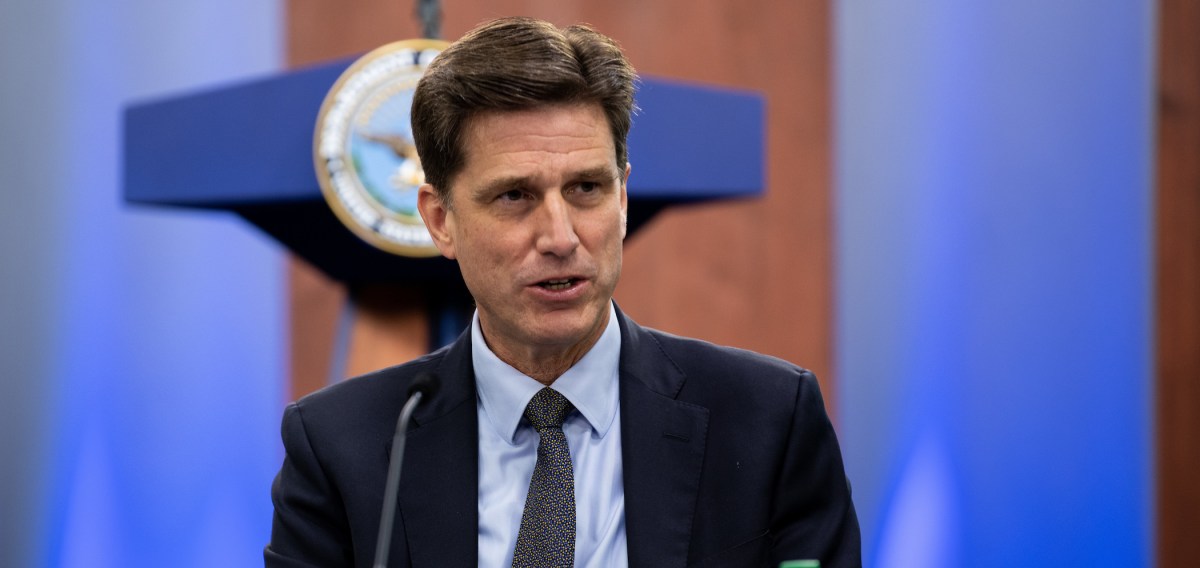Politics did not influence JEDI decision, Deasy says

The Department of Defense’s award of the $10 billion Joint Enterprise Defense Infrastructure (JEDI) cloud contract to Microsoft was not politically influenced, CIO Dana Deasy testified Tuesday.
The department designed the acquisition process so that the contracting officers who made the decision on the landmark cloud contract were kept anonymous and insulated from political influences, Deasy said during a Senate Armed Services Committee hearing on his confirmation as DOD CIO.
“After we submitted the [request for proposals] … we went out and found approximately 50 government civilian servants that were experts in cloud computing and we compartmentalized them and we segregated them into teams,” Deasy said. “At no time did one team have access to what the other team was working on.”
Several committee members pressed Deasy on reports that President Donald Trump pushed Pentagon leadership to “screw” Amazon — whose cloud provider, Amazon Web Services, lost the JEDI competition to Microsoft — and whether it influenced the way the contract was awarded. The president also had said publicly in July that he was going to “take a very strong look at” the contract after hearing complaints from some non-AWS bidders. Soon after that, Defense Secretary Mark Esper announced his own review of the acquisition, leading many to question if Trump influenced that decision.
Trump has publicly attacked Amazon on many occasions before and during his presidency. As Sen. Angus King, I-Maine, put it during the hearing, “Mr. Trump’s antipathy to Amazon is well-known.”
But Deasy explained that the way he built the team that evaluated the bids made so politics couldn’t permeate any decision-making. And to the best of his knowledge, he said, no one from the White House has contacted members of the source-selection team. On top of that, “we have kept the identity of every member of the source selection team anonymous throughout this process,” he said. The DOD announced Microsoft as the winner on Oct. 25.
In the case of an acquisition like JEDI, the source-selection team makes “the final decision,” before bringing that to Deasy, who shares the news with the secretary and deputy secretary. “All I do is take that final acquisition decision and inform the deputy and inform the secretary on the decision taken.”
“And the final decision by those panels was to award the contract to Microsoft?” Sen. King asked Deasy.
“Yes, it was,” Deasy said.
Deasy also said he never shared any proprietary information on the bidders or their bids in his meeting with DOD leadership.
Despite Deasy’s comments, there’s still concern that the White House could have indirectly influenced the decision, according to a source close to the committee. The acquisition officials “don’t work in a vacuum. They read the same paper and see the same trend lines.”
Senators also asked Deasy whether JEDI would represent a soft target for U.S. adversaries, since so much information would be stored on a single infrastructure. King asked whether it would a potential “bonanza” for attackers. Deasy reiterated the Pentagon’s assertion that JEDI will actually be more secure than existing infrastructure, and he noted that DOD will still have multiple cloud contracts with multiple vendors even after JEDI is implemented.
Deasy has served as DOD CIO for about a year-and-a-half now. His need for Senate confirmation comes after a new law under the National Defense Authorization Act went into effect Jan. 1. The law also updated the CIO’s responsibilities and added authorities, such as requiring military services to submit IT spending to the DOD CIO for review and setting IT standards the branches must adhere to.






